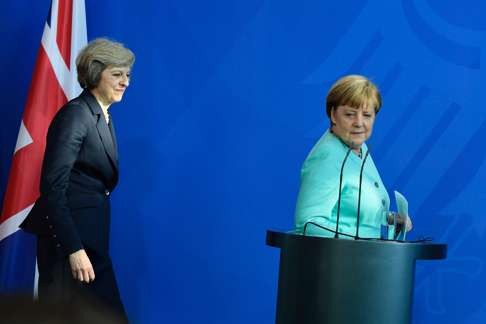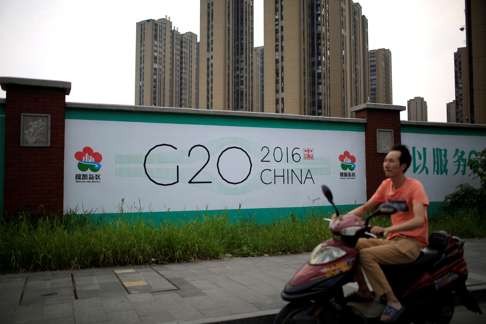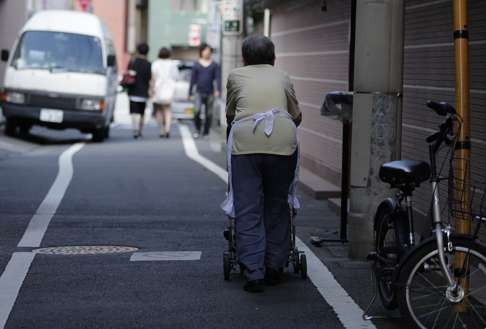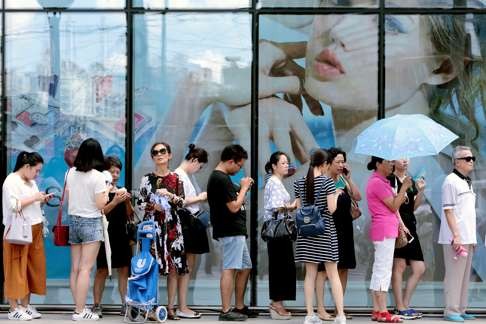
Come September, a world in crisis will look in vain to the G20 for leadership
Andrew Sheng says despite the best efforts of its Chinese hosts, the G20 summit is unlikely to produce a coherent response to any of our critical problems, given current geopolitical rivalries and the turn to radicalism


In his welcoming address to finance ministers and central bankers meeting in late July, Premier Li Keqiang (李克強) argued that, in a period of slowing global growth, the priorities are: strengthening macroeconomic policy coordination; a big push in structural reforms aimed at innovation, deregulation, more competition and greater openness; and, improved global economic and financial governance.
Such a list of noble objectives is expressed in language that the Americans and Europeans can easily support, in terms of making “the global economic system more fair, just and open”. However, the reality of an “innovative, invigorated, interconnected and inclusive world economy” is somewhat more complicated.
While the world is more interconnected than ever, and no one can argue against more innovation, the world economy is neither invigorated nor inclusive. Inequality is worsening everywhere and when humans migrate from failed states to more successful economies, barriers are coming up. Brexit occurred largely because of British fears of being overwhelmed by open borders. If you fully believe the language of US presidential candidate Donald Trump, America is becoming more isolationist and de-globalisation is in the air.

There are simply too many factors working against invigoration, whether global or national.
The atmosphere in Hangzhou should be particularly interesting, in that the summit will feature participants with different objectives all meeting in one place – what the Chinese call “same bed, different dreams”.
The Europeans will still be preoccupied with the full implications of Brexit, as well as dealing with the immigration and terrorist challenges and a looming Italian banking crisis. Theresa May will be making her maiden appearance at the G20 as the new prime minister of the UK, soon to be no longer a member of the EU.
President Barack Obama will be making his farewell attendance, even as the US presidential election is filled with more strident rhetoric, with Republican candidate Trump making more outlandish sound bites that make friends of the US cringe and worry.
Meanwhile, Turkish President Recep Tayyip Erdogan will arrive after consolidating his power in the wake of a failed coup against him, and is likely to draw closer to Russian President Vladimir Putin.

Premier Li is correct to assess that the present global economic situation is grim and that the global community expects leadership from the G20. The fact is that despite all the efforts of its Chinese host, the summit’s outcome will not satisfy anyone.
There is a crisis of insecurity, with people living in fear of losing jobs, failing health, insufficient retirement funds and simply too much debt
The first barrier is that the chemistry between the present G20 leaders is not quite right, because outright geopolitical rivalry has made the situation more tense. Recent US foreign policy initiatives have not made too many friends, with the Saudis concerned about the rapprochement with Iran. China is not comfortable with the “pivot” to the Pacific, while the recent Hague tribunal decision on the South China Sea has only resulted in more disagreement.
The second obstacle is that there is no consensus on what to do with the looming global secular deflation. While central bankers have acknowledged that they are close to the limits of what unconventional monetary policy can do, there is no agreement on the stance of fiscal policy. The Germans are adamant on austerity, the Japanese are still struggling with how to get the economy going, and the US recovery seems sluggish at best. Global productivity numbers are not reflecting any strong profits upturn. Stock markets are nervous of any interest rate increases and retail investors are increasingly nervous about investing in money market and equity funds in a zero interest rate environment with huge uncertainty.

Despite their brave talk, the Chinese are realistic and know it may be too much to expect G20 leaders to undertake anywhere near the same courageous stance as they did at the 2009 summit, when then British prime minister Gordon Brown rallied for a common stance to combat the 2008 financial crisis.
G20 summits are also subject to national political cycles. The US, Germany, France and South Africa are all heading for the polls within the next 12 months. The incumbent leaders will be hard-pressed to make any commitments in view of the expected changes.
There are deeper reasons on the lack of leadership. Brexit showed that there is significant distrust, among the people, of the establishment or elite, and that the fear of globalisation and foreigners is driving some to fundamentalism of different shades, from the far right to religious fanaticism. There is a crisis of insecurity, with large groups of people in a certain class living in fear of losing jobs, failing health, insufficient retirement funds and simply too much debt.
In Hong Kong, this is reflected in views that the establishment just doesn’t get it and that localism is gaining traction.
Moreover, there is no intellectual leadership in the academic community on what to do in the face of deeply divided societies, a turn for the worse in climate change, and the rise of terrorism and fundamentalism. No one even near the stature of John Maynard Keynes (in the 1930s) has emerged, eight years after the 2008 crisis.

Consequently, if you carefully read the text of the Chinese leadership on the G20, you will discover that in a reality of little global consensus, the host is presenting a plan of self-strengthening, deepening its own reforms, contributing to the global recovery by pushing domestic consumption and recovery, and maintaining a stable renminbi exchange rate, even though some at home are calling for a weakening to maintain competitiveness.
The bottom line is that we will expect the usual homilies and officialese language on working together because we are mutually dependent. But, until each society decides to act more convincingly on its own inclusivity, we will still see a divided G20 and a divided world.
Andrew Sheng is a distinguished fellow at the Asia Global Institute, University of Hong Kong